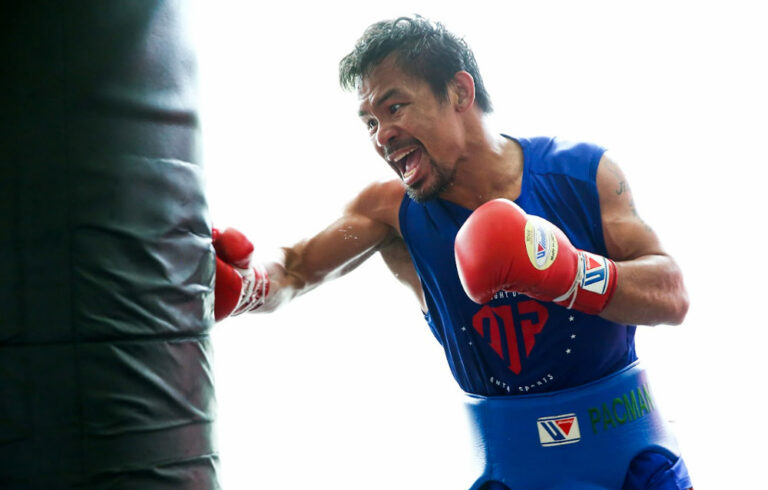Maria Sharapova has been provisionally banned from tennis after she revealed on Monday she tested positive at the Australian Open for a recently banned drug that she has been taking for 10 years for health reasons.
The drug is called meldonium, though Sharapova said she had been using it under the name of mildronate and was unaware of both the different name and the fact it is on the World Anti-Doping Agency’s banned list until she received a letter notifying her of the positive test 10 days ago.
“I let my fans down, I let the sport down that I have been playing since the age of four and I love so deeply. I know with this I face consequences and I don’t want to end my career this way and I really hope I will be given another chance to play this game.”
Sharapova claimed she was prescribed meldonium by her doctor in 2006 to deal with health issues such as an irregular heartbeat and a history of diabetes in her family. But the substance was added to the banned list in January of this year because Wada said there was “evidence of its use by athletes with the intention of enhancing performance”.
Sharapova added: “For the past 10 years I have been given a medicine called mildronate by my family doctor and a few days ago after I received the ITF letter I found out that it also has another name of meldonium which I did not know. It is very important for you to understand that for 10 years this medicine was not on Wada’s banned list and I had legally been taking the medicine for the past 10 years. But on 1 January the rules had changed and meldonium became a prohibited substance which I had not known. I failed the test and I take full responsibility for it. I made a huge mistake.”
Advertisement
The ITF said Sharapova, who now faces a ban from the sport, had been informed of the positive test on 2 March and she will be provisionally suspended from 12 March.
One of Sharapova’s biggest sponsors, Nike, announced it had suspended its relationship with her while the investigation continues. “We are saddened and surprised by the news about Maria Sharapova,” a Nike statement read.
However, Shamil Tarpishchev, president of the Russian Tennis Federation, told the Russian news agency TASS he expected Sharapova to be available for this summer’s Rio Olympics after describing the positive test as “nonsense”.
Sharapova’s announcement is almost unprecedented for a top athlete. Most sports stars try to hide positive tests for performance-enhancing drugs, hoping news will not break until a suspension is revealed. But few athletes are like Sharapova who has made herself into the highest-paid female in sport, earning more than $20m annually, through a series of high-end endorsement deals. The implication that Sharapova has been cheating can be a devastating blow to those deals. By revealing the test results herself she is attempting to take control of the story, hoping that by being up front people will believe she is being honest and really was taking mildronate for health purposes.
Sharapova claimed she was prescribed meldonium by her doctor in 2006 to deal with health issues such as an irregular heartbeat and a history of diabetes in her family. But the substance was added to the banned list in January of this year because Wada said there was “evidence of its use by athletes with the intention of enhancing performance”.
Sharapova added: “For the past 10 years I have been given a medicine called mildronate by my family doctor and a few days ago after I received the ITF letter I found out that it also has another name of meldonium which I did not know. It is very important for you to understand that for 10 years this medicine was not on Wada’s banned list and I had legally been taking the medicine for the past 10 years. But on 1 January the rules had changed and meldonium became a prohibited substance which I had not known. I failed the test and I take full responsibility for it. I made a huge mistake.”
Advertisement
The ITF said Sharapova, who now faces a ban from the sport, had been informed of the positive test on 2 March and she will be provisionally suspended from 12 March.
One of Sharapova’s biggest sponsors, Nike, announced it had suspended its relationship with her while the investigation continues. “We are saddened and surprised by the news about Maria Sharapova,” a Nike statement read.
However, Shamil Tarpishchev, president of the Russian Tennis Federation, told the Russian news agency TASS he expected Sharapova to be available for this summer’s Rio Olympics after describing the positive test as “nonsense”.
Sharapova’s announcement is almost unprecedented for a top athlete. Most sports stars try to hide positive tests for performance-enhancing drugs, hoping news will not break until a suspension is revealed. But few athletes are like Sharapova who has made herself into the highest-paid female in sport, earning more than $20m annually, through a series of high-end endorsement deals. The implication that Sharapova has been cheating can be a devastating blow to those deals. By revealing the test results herself she is attempting to take control of the story, hoping that by being up front people will believe she is being honest and really was taking mildronate for health purposes.
Sharapova’s lawyer, John Haggerty, told reporters that, while athletes use meldonium for performance-enhancing purposes, it is at higher levels than Sharapova was taking. He did not say what that level was or reveal the name of her doctor.
The punishment for a positive test can be up to a four-year ban, though is seems unlikely that Sharapova would get anywhere near four years for a first violation. Still, even a one- or two-year suspension might make it hard for her to return to tennis given her injury history.
Steve Simon, chief executive for the WTA, said: “I am very saddened to hear this news about Maria. Maria is a leader and I have always known her to be a woman of great integrity. Nevertheless, as Maria acknowledged, it is every player’s responsibility to know what they put in their body and to know if it is permissible.
“This matter is now in the hands of the Tennis Anti-Doping Program and its standard procedures. The WTA will support the decisions reached through this process.”
A Wada spokesman said: “Wada is aware of the ongoing case. As is our normal process, and in order to protect the integrity of the case, Wada will refrain from commenting further until a decision has been issued by the ITF. Following that, Wada will review the reasons for the decision and subsequently decide whether or not to use its independent right of appeal to the Court of Arbitration for Sport (CAS).
“We can confirm that meldonium was added to the 2016 Prohibited List which took effect on 1 January 2016, having previously been on WADA’s monitoring program for the duration of 2015. Meldonium was added [to the Prohibited List] because of evidence of its use by athletes with the intention of enhancing performance.”(Les Carpenter)
Link: http://www.theguardian.com/sport/2016/mar/07/maria-sharapova-failed-drugs-test-australian-open-2016-tennis



